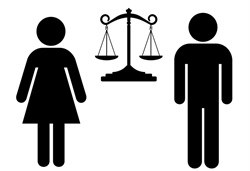
Top stories






More news






Logistics & Transport
Uganda plans new rail link to Tanzania for mineral export boost













Recent Adjudicator decisions have once again highlighted the importance of ensuring that divorce settlement agreements and accompanying orders are drafted strictly in line with the Pension Funds Act 24 of 1956 ("The Pension Funds Act"), read together with the Divorce Act 70 of 1979 ("the Divorce Act").
The aim of section 37A of the Pension Funds Act is to protect a member's pension benefits from his/her creditors, and it expressly limits a fund's ability to deduct amounts from a member's pension interest. As a general rule a fund may only make a deduction from a member's benefit if such a deduction is allowed in terms of the Pension Funds Act, the Income Tax Act and the Maintenance Act. This general rule is, however, subject to the exceptions set out in section 37D.
One of these exceptions relates to divorce. Section 37D(1)(d)(i) states that a registered fund may deduct any amount assigned to a non-member spouse in terms of a divorce order granted in terms of section 7(8)(a) of the Divorce Act.
When parties divorce, the court dissolving the marriage may make an order (i) directing the applicable fund to make an endorsement in its records about the non-member spouse's entitlement to a portion of a pension interest and (ii) to pay such portion to the non-member spouse in accordance with his or her choice. All of this must be specifically claimed for in the summons (and accompanying settlement agreement, if applicable).
Section 7(8) of the Divorce Act, read together with section 37D(4)(a) of the Pension Funds Act, sets out certain conditions with which a divorce order must comply in order for the fund concerned to be able to give effect to a non-member spouse's claim. These conditions can be summarised as follows:
Earlier this year, in the matter of Areias v Momentum Retirement Annuity Fund and another [2013] JOL 30007 (PFA), the Adjudicator had to consider whether a divorce order met the requirements as set out above. In this case the complainant wanted to rely on a divorce order which entitled her to 50% of her former husband's pension interest. However, the order did not name the fund and it didn't refer to "pension interest" as defined in the Divorce Act. The settlement agreement simply referred to "policies which shall continue to be paid by the member until maturity date when the policies will be paid out in equal shares". The Adjudicator held that a court order is only binding on a particular pension fund if it mentions the fund by name, makes reference to "pension interest" and otherwise complies with the relevant sections of the Pension Funds Act and Divorce Act (as set out above). The complaint was therefore dismissed.
In the recent matter of Bowyer v Personal Portfolio Preservation Fund the Adjudicator stated that the fund in question should not have complied with the divorce order because the order did not comply with the requirements as set out above. This matter clearly shows the Adjudicators' tendency to insist on strict compliance with the requirements of the said legislation before giving effect to a divorce order in terms of which pension interest or part thereof is allocated to a non-member spouse.
If the divorce order does not strictly meet the above conditions, it will not be in compliance with the Divorce Act read together with the Pension Funds Act, and will therefore not be enforceable against the fund. The fund in question has no discretion in this regard, since it is strictly bound by the Pension Funds Act. The recent Adjudicator decisions in this regard (two of which I mentioned above) make it very clear that funds and administrators must act with extreme caution when receiving a request for payment in terms of a divorce order and must ensure that payments are always made in terms of a valid court order.
If your divorce order is found to be unenforceable against the fund in question, it does not mean that you lose your claim for the pension interest as awarded: you still have a claim, but you will have to claim against your ex-spouse. You therefore either have to go back to court to sue your ex-spouse for the value of the pension interest you are entitled to and hope he/she has the funds to make good your claim, or you have to approach the court that issued the divorce order and request an amendment in order to bring it in line with the provisions of the Divorce Act and the Pension Funds Act. Unfortunately, both options involve further legal costs. Even if your ex-spouse confirms that he/she has no problem with the deduction of the pension interest awarded to you, it won't affect the unenforceability of the order against the fund.
